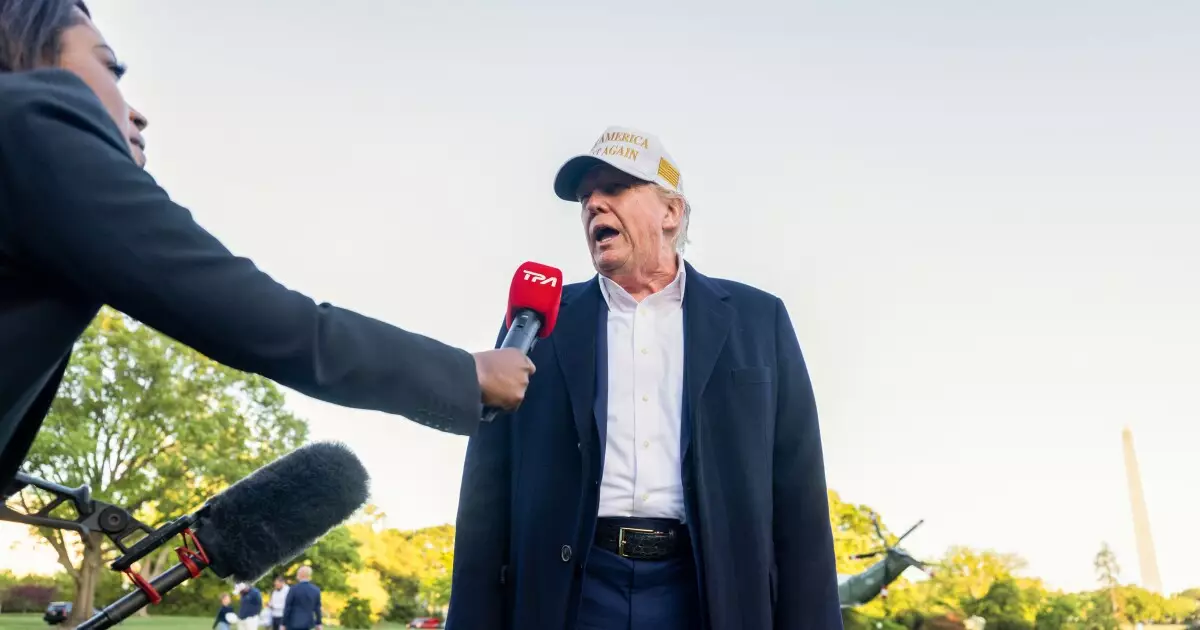The political landscape in America has always been a battleground for differing beliefs and values, yet the most recent developments under the Trump administration represent an escalation that many center-right wing liberals might find deeply concerning. Trump’s latest executive order instructs the Justice Department to identify cities and states he claims are obstructing federal immigration enforcement, a move that feels more retaliatory than rational. With Attorney General Pam Bondi and Secretary of Homeland Security Kristi Noem assigned a mere month to compile this list, the complexity and effects of such an initiative raise significant questions about governance and local autonomy.
At the heart of the order lies the idea of sanctuary cities—municipalities that prioritize local policies over federal immigration directives. While some may argue that these cities create safe havens for undocumented immigrants, one needs to examine whether the federal government should impose penalties on local governments for adopting these practices. Trump’s assertion that these jurisdictions may lose federal funding if they do not comply reflects a troubling trend: the federal administration leveraging its financial power to enforce compliance rather than foster cooperative federalism.
Federal Funding as a Weapon
One of the most troubling aspects of Trump’s directive is the overt threat to withhold federal funds from cities that resist compliance. Such tactics raise ethical concerns regarding the proper use of federal funding and the responsibilities of local governments. When federal authorities like the Department of Justice utilize funding as a weapon, they undermine the concept of collaborative governance that American democracy seeks to uphold. Cities like Philadelphia and Chicago are now caught in the crossfire, struggling to navigate a complex web of competing policies while ensuring public safety and community trust.
The recent injunction from U.S. District Judge William Orrick, which prohibits the Trump administration from withholding funds, signifies a pushback against federal overreach. This legal ruling serves as a vital reminder that while the federal government holds significant power, local jurisdictions remain ever vital to maintaining trust and providing critical services to their communities. Tony LoPresti’s assertion regarding the court judgment echoes a broader sentiment: local governments should have the authority to determine the best course of action for their constituents without a looming threat of financial penalties from above.
Communities in Crisis
Trump’s administration seems all too willing to politicize immigration policy, often painting local governments as the enemy in a fabricated war on terror. However, the reality is that communities are not monolithic; each with its distinct needs, they can benefit from their respective local policies. The idea promoted by Trump and his allies that shielding undocumented immigrants somehow endangers public safety is not universally accepted. Reports of community policing in sanctuary cities demonstrate a holistic approach to law enforcement—focusing on community relations rather than isolating vulnerable populations.
Furthermore, let’s not forget the larger, societal implications of such political maneuvers. Messaging surrounding immigration enforcement often exaggerates criminality among immigrant populations, promoting an overarching narrative that fuels division and animosity. This environment of mistrust makes it increasingly difficult for immigrants to engage with law enforcement when they might be victims of crime, thereby creating a paradox that obstructs the very public safety Trump claims to prioritize.
History Repeating Itself
Drawing parallels to previous administrations, it’s clear that immigration enforcement is a contentious issue that transcends party lines. The Obama administration, for instance, also grappled with sanctuary city policies, though it approached them with a more measured response. The notion of penalizing local governments is not new; however, it appears that Trump’s approach is disproportionately punitive, lacking the nuance and collaboration necessary for constructive dialogue.
This relentless cycle of punitive measures, litigation, and countermeasures only serves to heighten divisions among diverse communities and the federal government. Instead of fostering a climate of shared responsibility, fear and animosity prevail. As history unfolds, the landscapes of these disputes, marked by legal battles and executive orders, overshadow the genuine needs of the American people.
Ultimately, the ramifications of such policies will not merely affect the political elite; they trickle down, impacting families, children, and communities at large. Seeking a balance between national security and community trust must be the cornerstone of any immigration policy going forward—a mission that Trump’s latest executive order thoroughly undermines.

